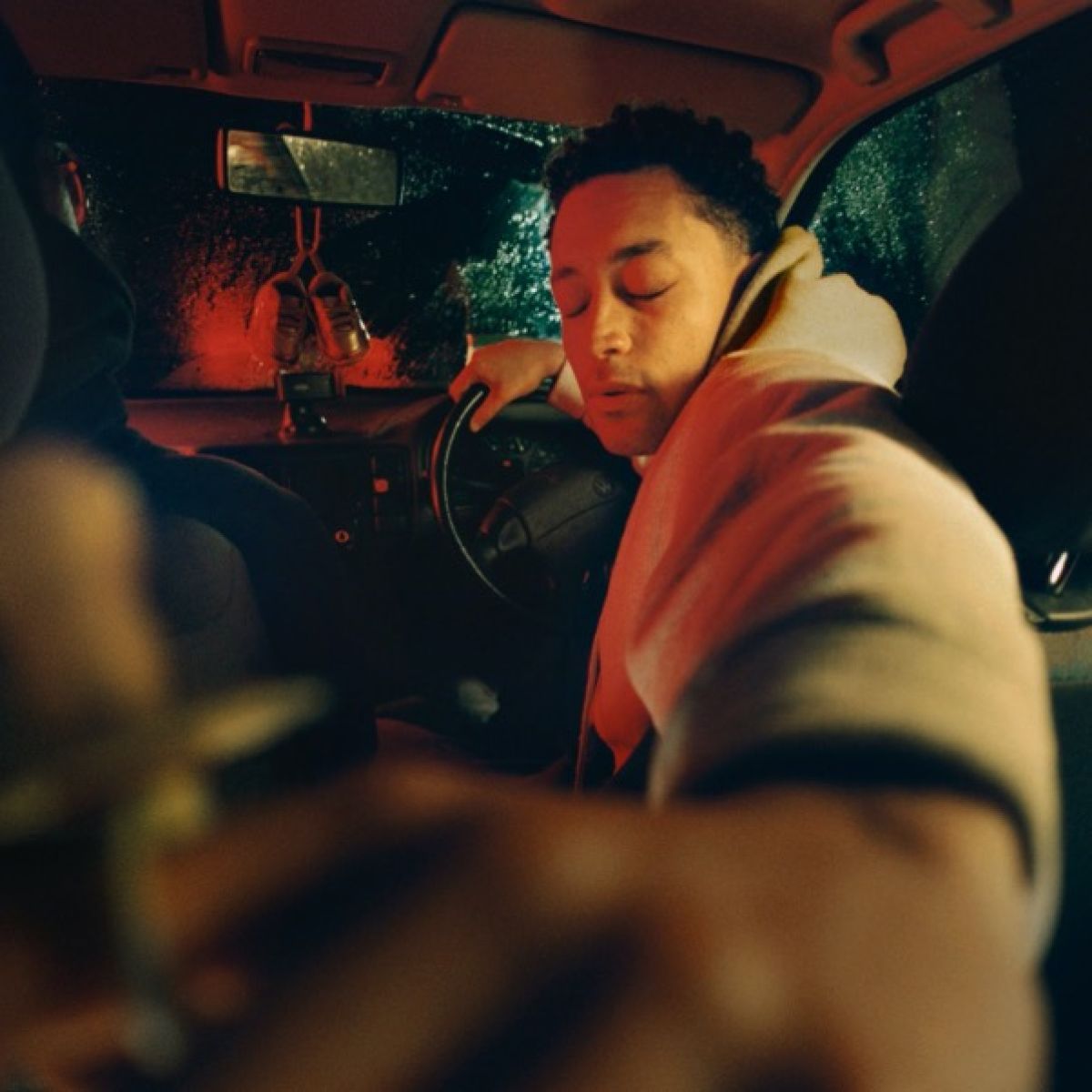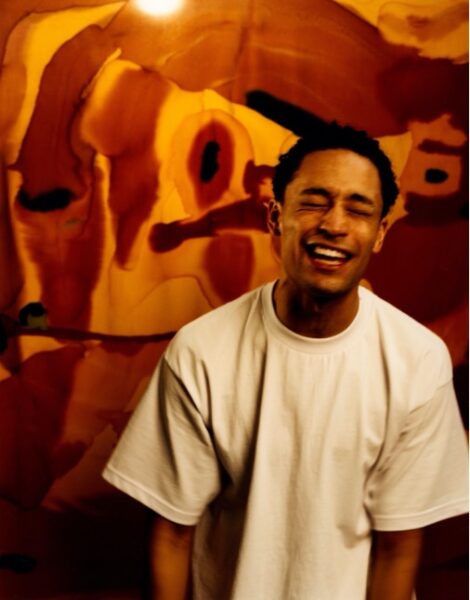Loyle Carner’s ‘hugo’ inspires us to reflect, to relate, and to take action

This ten-track album is beautiful. Beautiful may seem like the wrong word as it is dark, fuelled and filled with anger, and political; but Loyle Carner takes us on a journey of his self-reflection, and deep, personal thoughts about his identity. There’s so much beauty in being vulnerable and intimate, and this album is lyrically highly skilled – not that we would expect anything less.
This investigation and exploration into his own identity, predominately being a mixed-race Black man, was triggered by lockdown and Covid – what else was there to do I suppose – so, Carner took it amongst himself to address his identity: “I’m young, Black, successful and have a platform – but where do I go next?” This is the central question that every track comes back to in hugo.
This recurring question really ties the album together and links the tracks, truly making hugo a storytelling record, one that you can listen to on repeat for hours and still discover new meanings, layers, or a musical intricacy.
The album covers genres including neo-soul, grime, hip-hop, and rap, but also incorporates sampled interludes from non-musicians: mixed-race Guyanese poet John Agard and youth activist and politician Athian Akec. Adding these makes Carner stand out as an artist, as someone willing to push the boundaries and experiment. He also stands out as being unafraid to address political themes.
The first three tracks (‘Hate’, ‘Nobody Knows (Ladas Road)’, and ‘Georgetown (feat. John Agard)’) are already released as singles but I really like how Carner has released the first three – he’s building the story, adding new insights into his reflections layer by layer. I appreciate this, as ultimately an album is how an artist tells their story, and I almost want to describe Carner as clever by doing this, but it also just makes sense!

Carner teased the album on August 21, and within two months it will be released. This is so rare in the music industry nowadays, but I love how he doesn’t keep us waiting – and I can assure you it’s worth the wait!
October is Black History Month and it’s the perfect month for the release. This album will be emotive, especially for young Black men, but also for everyone: it commands appreciation for Carner and the vulnerability of hugo, and respect for addressing hugely political topics such as knife crime, race, class, and the private sphere or family. The album is both personal and political, but then again feminists argue that the personal is political… Regardless of being told it was cathartic to write, you already know this with the themes and topics covered.
- ‘Hate’
This track kicks off the album with a bang, and sets the scene bluntly – “Let me tell you what I hate”. This track marked a change for Carner, from mellow beats to anger and emotion fuelled tracks with poetic lyrics on injustice and inner anxieties.
- ‘Nobody Knows (Ladas Road)’
With lyrics including “I told the Black man he didn’t understand / I reached the white man he wouldn’t take my hand”, this track is immensely political, and sets up the rest of the album to continue with this theme and rhetoric. This is all on top of a gospel sample and crashing drums, almost juxtaposing each other – but like throughout the album, this confusion echoes what’s going on in his mind.
- ‘Georgetown (feat. John Agard)’
This track features samples of the Guyanese poet Agard and his acclaimed poem ‘Half-caste’ at the beginning and end of the track. This track specifically allowed Carner to write about being mixed, and that being a full identity: “feeling like one whole person instead of two halves.”
- ‘Speed Of Plight’
Standout lyrics from this track are the repeated “is the world moving fast for you as well? I can’t tell if it be only me. Shit. I can’t tell if it be only me”. This need for reassurance and lack of confidence is a real insight into the anxieties that young people face in the current day and age. The loop of the above lyric, especially at the end of the track, into a siren almost feels anxiety inducing – you can sense the real deep internal questioning that Carner writes about.
- ‘Homerton (feat. JNR Williams & Olivia Dean)’
In contrast, this track starts off softer and the light drums at the start almost feel like a sense of reassurance, a soothing aspect. Ending with the quote: “Sometimes the parents need the kids, more than the kids need the parents” and fading out the music swiftly is not only thought-provoking from the actual quote, but actually quite sad, and the sudden end really exacerbates the feeling of abandonment.
- ‘Blood On My Nikes (feat. Wesley Joseph & Athian Akec)’
From the track name, it’s already known that this track will be politically driven. The lyrics “scared of the boys who look like us” address the fact that knife crime is an epidemic amongst young men, and despite us often feeling safe around people who look like us, this is not the case. Featuring a speech on knife crime by Athian Akec, he powerfully exclaims that the knife crisis must be addressed at the roots: “poverty, inequality, austerity and a lack of opportunity”.
- ‘Plastic’
This track almost feels futuristic at points, and the effects used drive this idea of being taken over by material items and not appreciating the world around us. A call for love and compassion is clear.
- ‘A Lasting Place’
This track slows the album down, feeling almost peaceful. Keys start the track alone before the beat and drums starts to layer, relaxes us into a safe mental space to think about reflecting – both about ourselves and the world.
- ‘Pollyfilla’
This track addresses Carner wanting to “break the chains” of dysfunctional Black fatherhood; it’s a reflection of Carner being a father when he grew up without contact with his biological father, all on the top of a warm melodic beat. This is the level of deep personal topics that Carner allows us to experience with him.
- ‘HGU’
The album ends on a much more positive note of love and acceptance (“I forgive you”). Stand out lyrics from this track include “hurt people hurt people”, “life is lethal”, and “I’m lucky that we talk”. Carner is grateful despite the negatives occurring in life and really, he’s encouraging us to stay hopeful and positive.
Overall, Carner wants us to be ambitious in every aspect of our lives: personal relationships, pursuing goals, fighting injustice. This album inspires us all to self-reflect and “hold up a mirror”.
4/5.
The album is out October 21, pre-order here!







